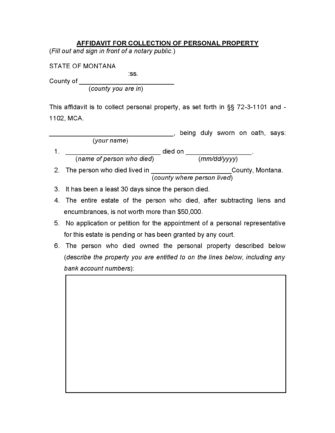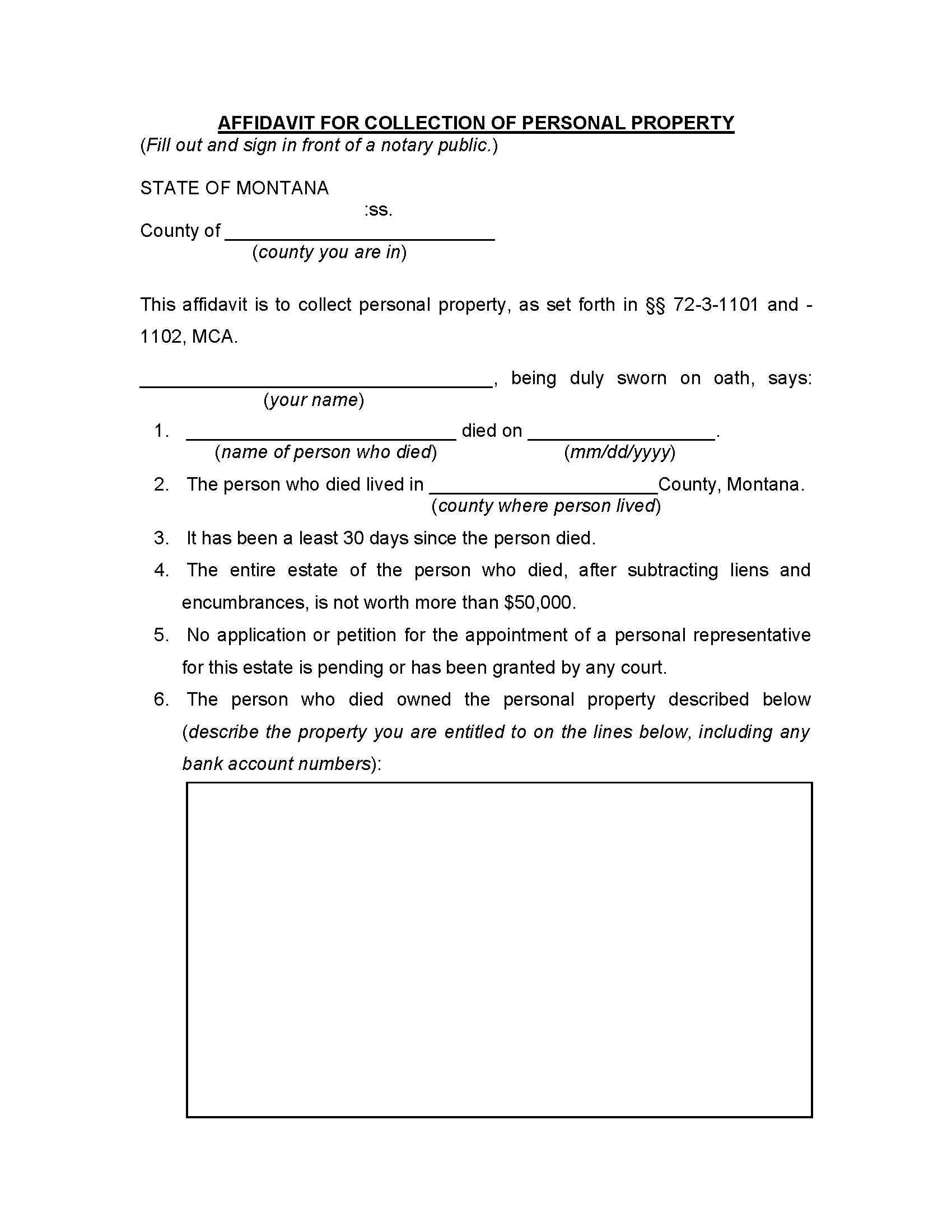A Montana small estate affidavit is used to avoid probate when transferring personal property from a deceased person to the next rightful successor. Known officially as the “Affidavit for Collection of Personal Property,” this document may be employed if the estate is valued at $50,000 or less, regardless of whether the deceased executed a last will and testament. However, the affidavit cannot be used if someone has asked the court to appoint a personal representative of the estate.
Successors should bear in mind that the affidavit is suitable for personal property only, including savings accounts, paychecks, motor vehicles, and other like assets. The affidavit cannot transfer ownership of a house, land, or any other real property.
Laws
- Statute: Title 72, Ch. 3, Part 11
- Maximum Estate Value (§ 72-3-1101(1)(a)): $50,000, less liens and encumbrances
- Mandatory Waiting Period (§ 72-3-1101(1)(b)): Thirty (30) days
- Where to File: Not mentioned in state statutes.
How to Record (3 Steps)
Step 1 – Small Estate Conditions
Personal property left by a decedent (the deceased person) can be collected using the small estate process. According to § 72-3-1101(1), this legal process is only applicable if the following is true:
- The value of the entire estate is not greater than $50,000, subtracting any liens or encumbrances.
- Thirty (30) or more days have passed from the date of death.
- The successor is entitled to the property being claimed.
- The court has not appointed a personal representative, and there is no application or petition for appointment pending.
Step 2 – Complete the Affidavit
An Affidavit for Collection of Personal Property must be filled out, signed, and dated in the presence of a notary public. The person who completes the affidavit, called the “affiant,” is the only successor named in the document. If there are multiple successors to the decedent’s estate, each additional individual must complete a separate affidavit. A copy of the death certificate should be attached to the notarized document.
Note: The affiant should make enough copies of the affidavit to distribute to each holder of the decedent’s property.
Step 3 – Collect Personal Property
The affiant will need to give a copy of the affidavit to each current property custodian (i.e., the individual or entity holding the decedent’s assets). The property custodian shall then release the property to the affiant. If transferring a motor vehicle, the affiant must file an Application for Title of a Vehicle by Right of Survivorship with the Montana Department of Justice – Motor Vehicle Division and pay the filing fee.

